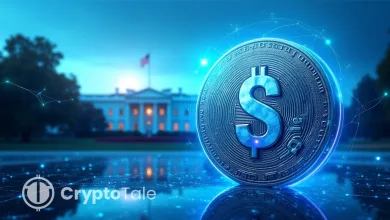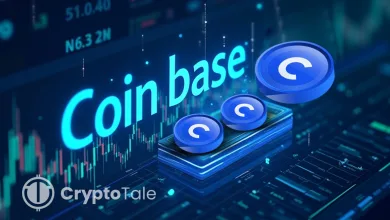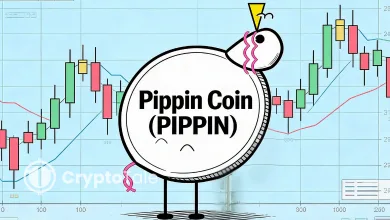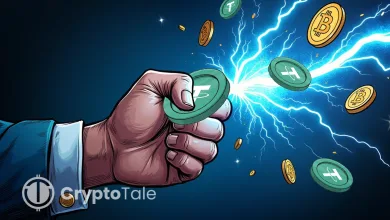Do Kwon Poised to Change Plea in $40B Terra Collapse Case
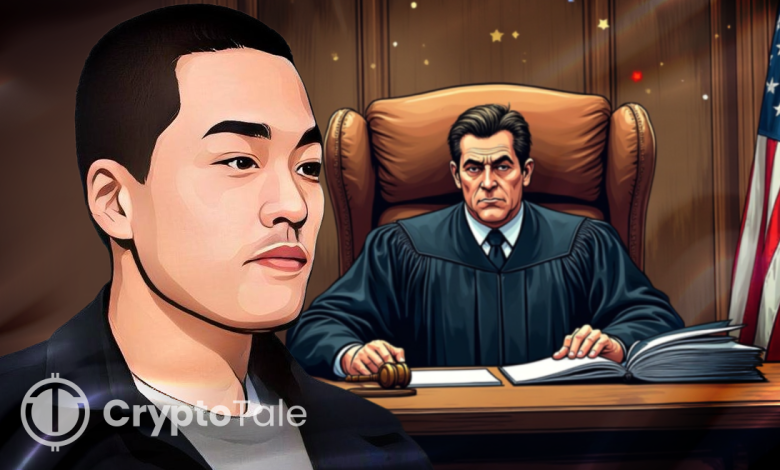
- The judge set a Tuesday hearing where Do Kwon may change his plea in the Terraform case.
- A plea deal could shorten the legal process, thus reducing the long public trial.
- The case may influence how crypto leaders and regulators handle platform failures.
The collapse of the Terra ecosystem in 2022 was one of the most devastating events in crypto history, erasing over $40 billion in value and shaking investor confidence. Moreover, the scam triggered investigations in several regions and became a cautionary tale for investors and regulators. Reportedly, Kwon was extradited from Montenegro to the U.S. after a protracted legal battle involving both U.S. and South Korean authorities.
Presently, the firm is back in the limelight as the CEO, Do Kwon, is poised to change his plea in the case. According to sources, Judge Paul Engelmayer of the U.S. District Court for the Southern District of New York has scheduled a Tuesday hearing for the case. The judge had also ordered the conference on Monday, instructing defense attorneys to review any plea agreement or “Pimentel letter” with their client beforehand. The move comes after Kwon’s January plea of not guilty to nine felony counts, which include securities fraud, wire fraud, and market manipulation, linked to the $40 billion collapse of the Terra ecosystem.
Court Proceedings and Possible Plea Deal
According to court filings, Kwon must be prepared to deliver a narrative allocution in open court if pleading guilty. This statement must outline all elements of the offenses in question. Judge Engelmayer encouraged defense counsel to assist in drafting the allocution to ensure clarity and efficiency during the proceedings.
Legal analysts have noted that an early plea deal could involve the reduction of criminal charges or a lighter sentence in exchange for cooperation with investigators. Such cooperation may include, for example, giving testimony in related cases or aiding ongoing regulatory investigations into the crypto sector.
Such a move would save both the court and the crypto community from the protracted public scrutiny regarding the technical and operational aspects of the Terra collapse. In this way, it could promote the restitution process for those investors who had suffered severe losses with the collapse of TerraUSD and LUNA.
The trial, tentatively scheduled for January 2026, will require extensive technical evidence and testimony from blockchain experts, investors, and regulators. Further, Prosecutors indicated that they needed to review six terabytes of data during the discovery process and pointed out that a shift in plea could eliminate the need for a lengthy trial.
Related: Kwon’s Legal Battle Continues Despite DOJ Crypto Shift
Broader Impact on Crypto Regulation
Legal analysts stated that an early plea deal could reduce criminal charges in exchange for cooperation with investigators. Such coordination may include giving testimony in related cases or aiding regulatory investigations in the crypto sector.
If Kwon pleads guilty, the court would set a sentencing date and disclose any terms agreed upon with prosecutors, but if he does not change his plea, he would have to prepare for the consequences that would arise in one of the most significant trials in crypto’s legal history.
Kwon’s case is part of a wave of high-profile prosecutions targeting executives following major crypto platform failures, which also includes FTX CEO Sam Bankman-Fried, whose case showed how the U.S. is ready to apply existing securities and fraud laws to digital assets.
The consequences could affect the ongoing debates in Congress about digital asset regulation, including laws targeting stablecoins. The entering of a guilty plea could create firmer precedents for regulators to enforce greater power against decentralized finance platforms and stablecoin issuers.
In the crypto world, the case is a litmus test for the enforcement of individual responsibility in an industry that fought so long and hard against traditional financial regulation. It poses the important question to the industry: Is this the beginning of a new era of holding executives accountable, or will it remain the exception and just a case in the public light?

